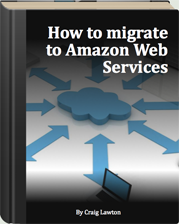The saga continues… Today I’d like to talk about the issue of software licensing in AWS.
Software licenses used to restrict the use of the software to hardware owned by the licensee. Some software licenses are still this way and you may find yourself in a situation where the software runs fine in AWS but you are in breach. This is becoming less of a problem though as more software companies allow their software to run on AWS.
Let’s look at Oracle as an example. If you wish to run Oracle RDBMS in AWS you have the following options:
- “Bring Your Own License” – (BYOL) – Companies with existing Oracle Database licenses can run Oracle RDBMS on EC2 instances.
- Oracle RDS instances (both On-Demand and Reserved) – Requires no pre-existing licenses. Companies pay a simple, hourly rate per RDS instance. The rate depends upon the database edition and instance size.
If you choose the BYOL option you must follow the rules outlined by Oracle. These rules look simple but limit your elasticity and flexibility and are difficult to track. But at least you get to continue to use a software asset you have already bought.
If you choose the second RDS option you get elasticity and flexibility but no asset. You are effectively renting Oracle RDBMS. This means the financial costing for projects needs to be amortised against a project or charged to IT (suckers!). This may also “break” the business case for hosting a solution in AWS to begin with as ongoing costs factoring in predicted usage, future growth and also allowing for short-term spikes in demand, can inflate costs dramatically.
In the past Enterprise software has been licensed by many methods including the number of users, the hardware and even the operating system. Enterprises might also have had multi-year enterprise agreements covering many software products. These existing investments and arrangements act as constraints on your AWS plans.
To confuse things more, other vendors have different arrangements. Microsoft only licenses certain products and you must go through a verification process to bring your own license.
If you’re a developer using licensed software all this seems rather silly and peripheral to your job. If you’ve ever been audited for licensing compliance by a major vendor though you know what a potentially expensive and time-consuming pain this is.
The AWS Marketplace, where software companies pimp their wares, is growing rapidly and now includes most of the major software vendors. The software licensing issues will converge over time and be better understood, but for now they are confusing and difficult to manage.



